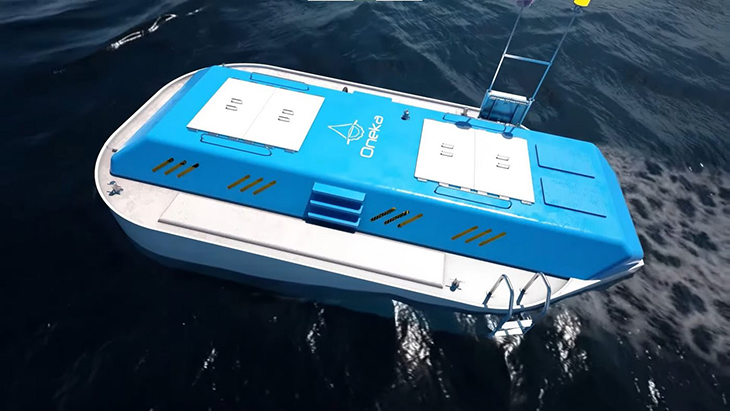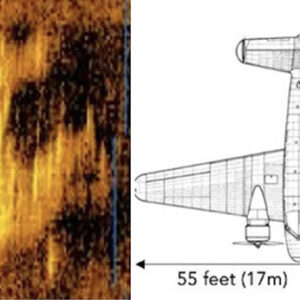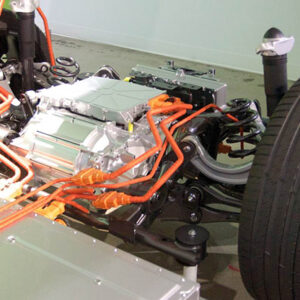
The desalination industry has a potential game-changer in Oneka, a pioneering Canadian startup that’s on the brink of revolutionizing this process by harnessing the power of the sea to decarbonize the entire sector.
With approximately 300 million people depending on seawater from the 21,000 desalination plants worldwide, the majority of which currently rely on fossil fuels for the energy-intensive thermo-desalination or reverse osmosis procedures, Oneka’s innovative approach could mark a significant shift.
Traditionally, desalination plants employ methods like thermos-desalination and reverse osmosis to convert seawater into clean drinking water. However, Oneka has introduced a groundbreaking solution that involves modular machines anchored to the seafloor, resembling buoys.
These machines utilize the kinetic energy generated by 3-foot waves, converting them into mechanical energy to power the reverse osmosis process. The largest commercially available module from Oneka is capable of producing an impressive 13,000 gallons of drinking water daily.
The global reliance on desalinated water is expected to increase, especially in the dire predictions of climate change materialize. According to data from the BBC, an estimated 300 million people currently depend on desalinated water, a number that is anticipated to rise. The desalination industry is projected to grow by 9%, reaching a staggering annual value of $29 billion by 2030.
Oneka’s approach presents several advantages over conventional land-based desalination plants. Firstly, it eliminates the need for land space, a critical factor for island nations where land availability is limited. Secondly, the modular machines designed by Oneka produce no greenhouse gas emissions, contributing to a more sustainable and environmentally friendly solution.
Addressing a major drawback of existing desalination technology, Oneka’s innovation tackles the issue of saline brine waste. Both thermal desalination and reverse osmosis processes generate highly saline brine water, posing a threat to marine life and ecosystems if not managed properly.
Oneka’s technology addresses this challenge by mixing the saline solution with three-quarters of the seawater taken up, resulting in a minimal 25% increase in salt content before releasing it back into the ocean.
Moreover, the modular design of Oneka’s desalinators allows them to be connected in chains, optimizing space utilization and simplifying the clean water transfer process to land.
Importantly, the entire system is designed to be environmentally friendly, with the chains, anchorage, and buoys proving to be conducive to marine life, quickly becoming populated by various creatures said the company.
Oneka has demonstrated the resilience of its buoy desalinators in adverse weather conditions, subjecting them to harsh 6-meter waves (nearly 30 feet) with successful outcomes. Early modules of their innovative technology have already been sold to communities in Chile, a region known for its arid climate.
As Oneka continues to push the boundaries of sustainable desalination, their advancements hold promise to push the boundaries of sustainable desalination, their advancements hold promise for a future where clean drinking water is produced with minimal environmental impact, marking a crucial step toward a more sustainable and water-secure world.
See more about how Oneka Technologies works in the video below:
What are your thoughts? Please comment below and share this news!
True Activist / Report a typo


